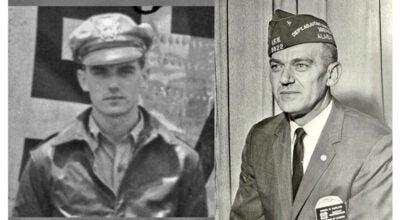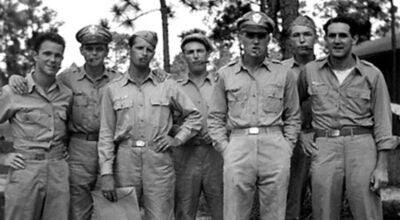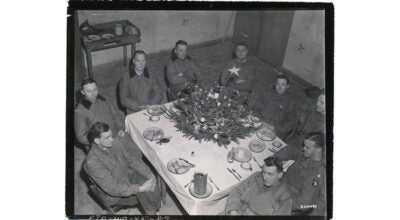No questions for D-Day soldier; it was that amazing
Published 2:20 am Saturday, June 25, 2016
Morley Piper, 91, spoke last weekend to a crowded room of Alabama newspaper families. Lo, these 72 years later, the D-Day survivor still stands tall, still speaks with a strong voice, as he looks back on that pivotal day in World War II and how it changed the world.
“We, the Americans, were all young soldiers, most of us, in the war. Ordinary young men, mostly. Ordinary because we had led ordinary lives before the war, lives that had not been fully developed. We had just come through the steel grip of the Great Economic Depression in the United States, and now were called to service. We became conscripts in a civilian-based Army that was sent to France, to Normandy, to go up against a professional German Army waiting on the bluffs high above the beaches, June 6, 1944.”
Morley was 19 then.
“The soldiers of the 29th Division, on that gray cold morning, came ashore in small boats in one of the most momentous military engagements in history, an epic battle that changed the course of the war. It was anything but easy. For long hours, the battle hung in the balance. In fact, the Allied Command, at one point during the morning, thought the invasion was failing. Fortunately, it didn’t, and it marked the beginning of the end of the long Nazi occupation of Western Europe.”
It is one thing to watch a movie or a documentary about D-Day, to hear a narrator say that things did not all go as planned. It is quite different to sit next to a survivor as he tells you the bombers that were supposed to first hit the beaches, creating craters in which the soldiers could take cover, didn’t get to fly; that Americans who went ashore were like sitting ducks for the Germans waiting on the bluffs. Yet young Morley led his fellow soldiers in the 29th, up the beach, and later through the hedgerows in France. He knows too well the cost.
“The price of freedom: I mentioned our casualties. Terrible. Terrible on the beach, terrible throughout Normandy, terrible throughout the war. The 29th Division was on the front line a long time. We had 14,000 soldiers in the division at full strength … and we had 22,000 casualties. 150 percent casualties. More than anyone else in the war. Not a figure to point to with pride, but stark testimony to the rigors of long service on the front lines from the beaches of Normandy to the Elbe River in Northern Germany, when the way mercifully came to an end. ”
Morley was with us last weekend because he is one of us, a former newspaper executive and former director of the New England Newspaper Association. The silence in the room as he spoke was almost eerie – no whispering, no coughs, no fiddling with phones. When he finished, we were all too stunned to speak.
Tweeted my longtime friend Chris Roberts, now a UA journalism professor, “D-day vet Morley Piper told his story at #apaBNA. Never been in a room of journalists where no one had a question. It was that amazing.”
It was that amazing, and an awesome reminder. Most of us have been called upon to do little for our country. On our worst days, we’ve not experienced what men like Morley fought through and have carried with them all the days of their lives.
God bless them, and God bless America.
More COLUMN -- FEATURE SPOT





